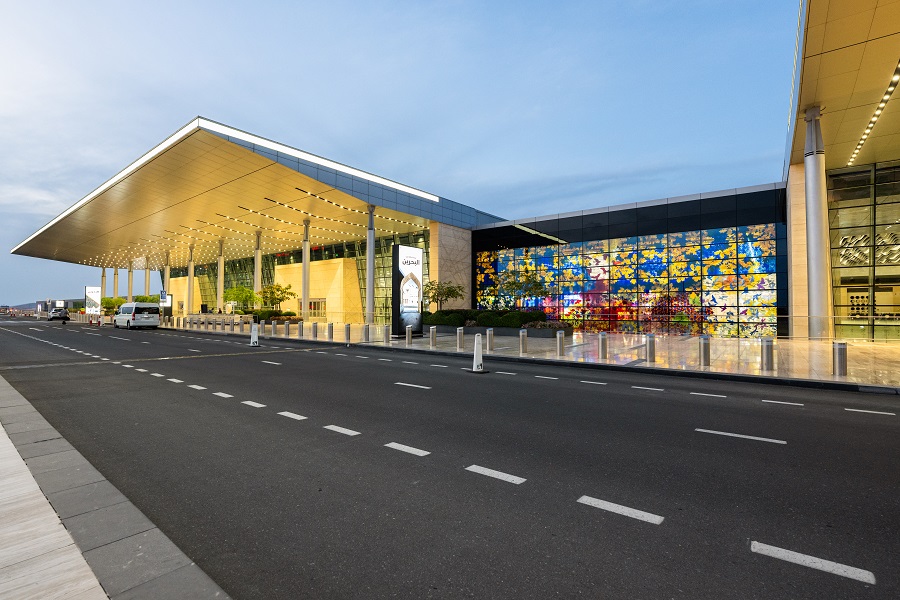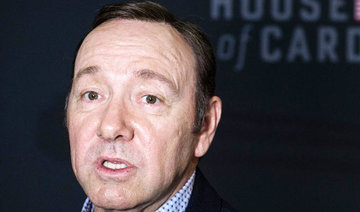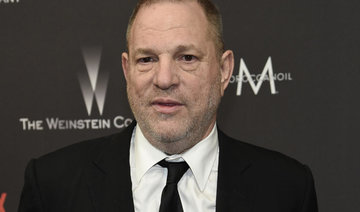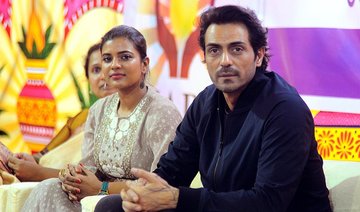MUMBAI: When Indian actress Divya Unny flew into the southern state of Kerala in 2015, she thought it was for a business meeting with an award-winning director about a role in his upcoming film.
Instead, she was called to the director’s hotel room at 9 pm, where the man propositioned her for sex and told her she would have to make compromises if she wanted to succeed in the film industry.
“You always hear of actresses getting called by directors to hotel rooms at night, but I didn’t think twice because I was going in with a reference,” she told Reuters.
Unny said she rejected the advances of the director, whom she declined to name, and left without a role in the movie. Reuters was unable to confirm her accusations.
Three other women involved in India’s film industry, the world’s largest, told Reuters that Unny’s experience isn’t unique. But even after allegations of sexual assault and harassment levelled at Hollywood producer Harvey Weinstein prompted a wave of similar complaints, Bollywood has been reluctant to name and shame perpetrators.
“The way men are being called out in Hollywood right now, I don’t know if it can happen in India,” said Alankrita Shrivastava, a director whose last film, “Lipstick Under my Burkha” was acclaimed for its examination of women and sexuality.
“In terms of how our psychology is, how patriarchy functions, it is much more entrenched,” she said.
The vast majority of Bollywood’s biggest producers and film-makers are men, many from prominent film families who until recently controlled most of the industry.
Mukesh Bhatt, who co-heads production house Vishesh Films, said India’s film industry should not be singled out and was limited in what more it could do to prevent harassment.
“What can we do? We cannot do any moral policing,” Bhatt, told Reuters in a telephone interview. “We cannot keep moral cops outside every film office to see that no girl is being exploited.”
The industry also had to be cautious about false allegations, said Bhatt, who was previously the chairman of apex industry body, the Film and Television Producers Guild of India.
“I am not saying men have not been exploitative. They have been for centuries. But today’s woman is also not as simple as she pretends to be,” he said. “But just as there are good men and bad men, so also there are women who are exploitative and very cunning. Also blatantly shameless to offer themselves.” He declined to provide any examples.
Despite laws requiring Indian companies to form internal committees to investigate sexual harassment at the workplace, very few of cases are reported to the police, said women’s rights activist and lawyer, Flavia Agnes.
“They (companies) may have a committee or they may not have one. They may do an investigation or they may not do one. And they may or may not file a complaint. It could go wrong at every stage,” she said.
Reports of sexual assault, while rare, are not unheard of in India’s film industry.
Earlier this year, Gopalakrishnan Padmanabhan Pillai, a popular actor in the Malayalam film industry best known by his stage name Dileep, was arrested by police who accused him and several others of kidnapping and molesting an actress. Dileep denies the accusations.
“He says it is a completely false case. He was framed by the police and some enemies,” B Raman Pillai, a lawyer for Dileep, told Reuters.
Fans cheered and distributed sweets as he walked out on bail last month after more than 80 days in prison. The police haven’t filed formal charges in court, after which a date for the trial would be set.
“We will file a charge sheet in the next two weeks. Maybe next week,” Biju Paulose, an inspector of police in charge of the case, told Reuters by phone.
Kangana Ranaut is one of the few Bollywood actresses who has publicly spoken out about the sexual assault and harassment. Ranaut, who has appeared in 30 films in the past decade, told Reuters she had faced “severe sexual exploitation and harassment at the work place,” without elaborating.
“I’ve read some stories (about harassment) shared by few prominent people, but most people find it hard to open up about such experiences,” she said. “Victim shaming is very common in our society, it’s done brutally and openly.”
According to a survey conducted by The Indian National Bar Association this year, around 70 percent of Indian women said they would not report sexual harassment at the workplace because they weren’t confident about the complaint mechanism and because of the stigma attached to victims.
Shrivastava, the director, said the kind of cinema Bollywood often produces demonstrates its attitude toward sexual harassment and assault.
For example, two of this year’s hit movies — “Toilet – Ek Prem Katha” and “Badrinath Ki Dulhaniya” — showed the hero stalking the leading lady, taking pictures of her without her knowledge.
“For decades, we have created cinema where harassment is depicted as love,” Shrivastava said. “And that reflects the mentality of the creators – that they keep portraying it, and excusing it in the name of commerce.”
In the wake of Weinstein scandal, some women say Bollywood failing to address harassment
In the wake of Weinstein scandal, some women say Bollywood failing to address harassment

Effat Film Festival celebrates emerging Saudi filmmakers

- More than 2,200 film submissions from 90 countries
- Dr. Mohamed Ghazala: It’s not about the money; it’s about uplifting filmmakers and nurturing a vibrant community
JEDDAH: The 12th edition of a student film festival celebrating the creativity of up-and-coming Saudi filmmakers is taking place at Effat University in Jeddah.
The Effat International Student Film Festival, which ends on April 15, has attracted more than 2,200 film submissions from 90 countries, as well as entries from 10 Saudi universities.
The competition shortlisted a total of 89 films from 28 countries, with cash prizes totaling more than SR50,000 ($13,333) available to the winners.
This year’s festival, held under the theme “From Dream to Film,” recognizes notable figures in the film industry, including Saudi director Abdullah Al-Muheisen, Saudi actor Hassan Assiri, Saudi director Khalid Al-Harbi, British director Joanna Quinn, and Prof. Ghada Gabara, president of the Egyptian Academy of Arts.
Other honorees hail from Japan, the US, and China.
Dr. Mohamed Ghazala, head of the School of Cinematic Arts and festival director, told of his passion for the event by emphasizing the importance of community and creative storytelling.
He said: “Running a film festival is just like making a film. We’re fueled by passion and the incredible support of our volunteers, contributors, and arts funding.
“It’s not about the money; it’s about uplifting filmmakers and nurturing a vibrant community. While organizing a festival can be challenging, it’s an exciting journey filled with hard work and joy.
“You don’t need a massive budget, endless time, or extensive business expertise to start a small film festival, the audience will find you. What matters most is a genuine love for film, the courage to take risks, and the drive to share meaningful stories.”
Jala Jalal, the leader of the student club at the School of Cinematic Arts, reflected on the significance of the festival for students.
Jalal said: “The showreel is more than just a collection of films, it’s a celebration of our creativity and growth as filmmakers. It’s a reflection of our voices and visions.
“What I love most about this festival is the opportunity it gives us to connect with the film industry, both locally and internationally. Working on the showreel and seeing the final outcome fills us with pride, not just in ourselves, but also in being part of a university that provides us the platform to bring our visions to life.”
The festival’s jury members come from a diverse international background. Friedrich Kluetsch, president of the documentary film jury, told Arab News: “The Saudi submissions were marked by a palpable joy in discovering the filmmakers’ surroundings and their close connection to the protagonists.
“It was evident in the films’ self-reflection, with three of them exploring filmmaking itself, portraying established filmmakers and an abandoned cinema.
“We noticed slight differences between the Saudi and international entries, particularly in the use of commentary or a narrator’s voice, which was more common in the international films and helped express the filmmakers' perspectives.”
Dr. Haifa Jamal Al-Lail, president of Effat University, highlighted the festival’s broader mission to provide a unique platform for Saudi and international film students to showcase their work.
She said: “This festival plays a pivotal role in creating connections between young filmmakers worldwide. It aligns with Saudi Arabia’s Vision 2030, fostering the country’s cultural movement and global presence in the arts.”
Dr. Asmaa Ibrahim, dean of the College of Architecture and Design at Effat University, underscored the growing international recognition of the festival, saying: “The increasing number of applications each year is testament to the festival’s growing status.
“It’s now the largest festival of its kind in the Arab world in terms of both the quality of films and the specialized focus on student filmmakers.”
Alongside film screenings, the festival features a range of seminars and workshops conducted by industry leaders, including representatives from Netflix, Sony, MBC Academy, and Toon Boom Animation.
Notable academic figures, such as professors from the University of Southern California, and the Communication University of China, were also scheduled to contribute lectures and workshops on topics like cinematography, directing, sound production, and film distribution.
An open discussion hosted by media personality Suha Al-Waal with actor and producer Hassan Assiri at Hayy Jameel also took place at the event.
Assiri, who was to be honored for his significant contributions to Saudi drama and production, shared insights into the evolving Saudi film industry, highlighting the growing opportunities for local talent and the increasing global recognition of Saudi productions.
Art Dubai to return for 18th edition with international lineup

DUBAI: Art Dubai — which is marking its 18th edition this year — is returning and brings together 120 galleries from across the Middle East, Asia, Europe and the Americas in what is expected to be one of the event’s most multicultural programs yet. Taking place from April 18-20, the event will host a calendar of daily talks, book launches, tours and other attractions.
Its diverse program includes Art Dubai Modern, curated this year by Magali Arriola and Nada Shabout, and Art Dubai Digital by Gonzalo Herrero Delicado and Bawwaba — which means “Gateway” — presenting 10 solo presentations by artists from various countries curated by Mirjam Varadinis and focusing on themes of migration, identity and displacement.
The event’s digital section, the first of its kind in an art fair, organized in partnership with Dubai Culture, highlights the rising influence of artificial intelligence and immersive technology in artistic creation. Installations by Hybrid Xperience, Breakfast, and Ouchhh Studio are featured, as well as 22 digital platforms from Dubai and internationally.
Entitled “After the Technological Sublime,” Delicado told Arab News that the theme aimed to provide “an opportunity to rethink what sublime is today: the concept that we have inherited since the 17th century when explorers were going out to explore the world. Now we can contrast that moment with what we are living today in the age of information and social media.”
In light of 30 new participating galleries from around the world, Pablo del Val, the event’s artistic director, said: “The really exciting aspect of this fair is the quality of the artworks.
“I think that this year you can see the maturity of the participants and really understand the vocabularies and the formats and the media that sell well in the city.
“There’s also a lot of color. The works we are showing this year show the state of the world we are living in, from technological change to a desire for escapism.”
Jordan’s Princess Iman joins parents on visit to Bahrain

DUBAI: In a significant milestone for the Jordanian royal family, Princess Iman bint Al-Hussein, the eight-month-old daughter of Crown Prince Hussein bin Abdullah and Princess Rajwa Al-Hussein, embarked on her first official overseas visit to the Kingdom of Bahrain.
Accompanied by her parents, the young princess was received by Bahrain’s King Hamad bin Isa Al-Khalifa at Al-Sakhir Palace.
For the occasion, Saudi-born Princess Rajwa – known for her elegant fashion choices – opted for a white-and-blue ensemble from London-based fashion label Erdem, including a floral midi pencil skirt and a draped short sleeved top. She completed the look with white lace slingback pumps from Manolo Blahnik and a Jacquemus shoulder bag.
Meanwhile, last month, Crown Prince Hussein took to Instagram to mark Mother’s Day with a heartfelt tribute to his mother, Queen Rania, and Princess Rajwa.
In the first of two images, Queen Rania is holding her granddaughter, Princess Iman, as the crown prince watches on.
In the second image, Princess Rajwa, dressed in a plain white t-shirt, is seen holding her daughter.
“To my beloved mother and my loving wife, your presence fills our lives with joy, and your love is the true meaning of giving. Happy Mother’s Day,” he captioned the post.
The royal couple welcomed their first child on Aug. 3, 2024.
Sir Brian Clarke’s artwork in Bahrain depicts vision of harmony

MANAMA: Symbolizing hope and beauty, an impressive stained-glass artwork by veteran British artist Sir Brian Clarke has been unveiled at Bahrain International Airport. Brimming with vibrant hues, brought alive by natural light shining through the glass, it is a visual symphony of geometrical details and natural elements, such as jasmine flowers, birds, and dragonflies. The work is called "Concordia" – the notion of living together in peace and harmony.

"What art does best is it transcends borders, speaks to everyone, brings us all closer together," Sheikh Salman bin Khalifa Al-Khalifa, Bahrain's minister of finance, said in the opening remarks at the April 10 unveiling event, attended by dignitaries including Bahrain's prime minister, Salman bin Hamad Al-Khalifa. "This visionary masterpiece by Sir Brian Clarke shines a light on the Kingdom of Bahrain's longstanding commitment to integrating our culture and heritage into national projects. But 'Concordia' is more than just a work of art. It is a symbol of Bahrain's openness, hospitality and ambition."
The work references Islamic geometry, and also features elements of medieval European tapestries and illuminated Christian manuscripts from the Books of Hours, prayer books from the Middle Ages. The work itself, standing tall at 34 meters in width and 17 meters in height, was an intensive labor of love that took more than two years to design, produce and install.
The colorful glass of “Concordia” was crafted by a team of artisans in Germany over a period of 40 days. It took 43 days to install the 127 individual panel work at the airport. For Clarke — whose stained-glass pieces can be found in the UK, Spain and Japan, among other places — “Concordia” has a special place in his practice.

“I have always had a dream of making a composition in a building on a great rectangular scale that is like a view through to another world,” he said in a written statement shared after Arab News attended the unveiling event. "It’s something that in some ways unites the two parts of the world, the one that I come from and this region. Everything I have ever learned about stained glass is in some ways expressed in this window. I am very grateful that I am able to share my enthusiasms about paradise with anyone who sees this window.”
Gaza finds mention at politically charged Coachella’s first Saturday

DUBAI: US politician Bernie Sanders found a moment to mention Gaza as he took to the stage at Coachella music festival on Saturday night in California to introduce US singer-songwriter Clairo.
“Now I’m here to introduce Clairo, not just because they are a great band, not just because Clairo at the age of 13 posted videos on the internet as a singer-songwriter,” said Sanders. “I’m here because Clairo has used her prominence to fight for women’s rights, to try to end the terrible brutal war in Gaza where thousands of women and children are being killed. So, I want to thank Clairo not only for being in a great band, but for the great work she’s doing.”
Another political moment arrived on Saturday night, when US rock band Green Day tweaked the lyrics of their track “Jesus of Suburbia” to reflect the ongoing Israeli attacks against Gaza.
While performing the song, lead singer Billie Joe Armstrong sang, “Runnin’ away from pain, like the kids from Palestine / Tales from another broken home.”
The original song lyrics from 2004’s “American Idiot” were, “Runnin’ away from pain when you’ve been victimized.”














